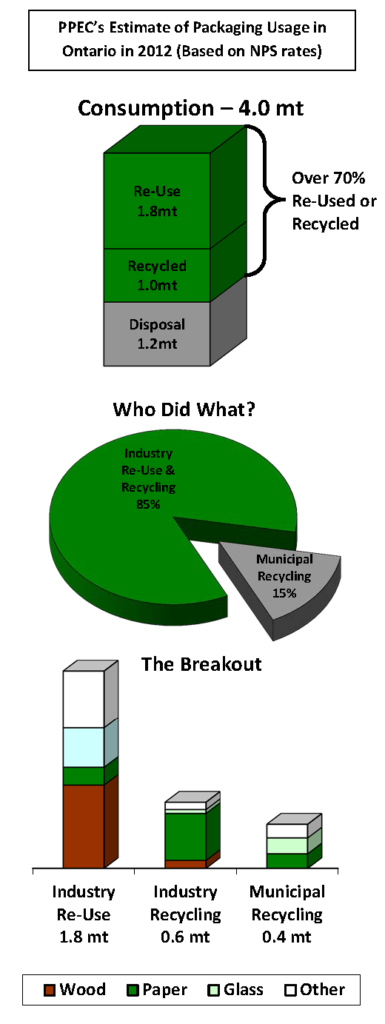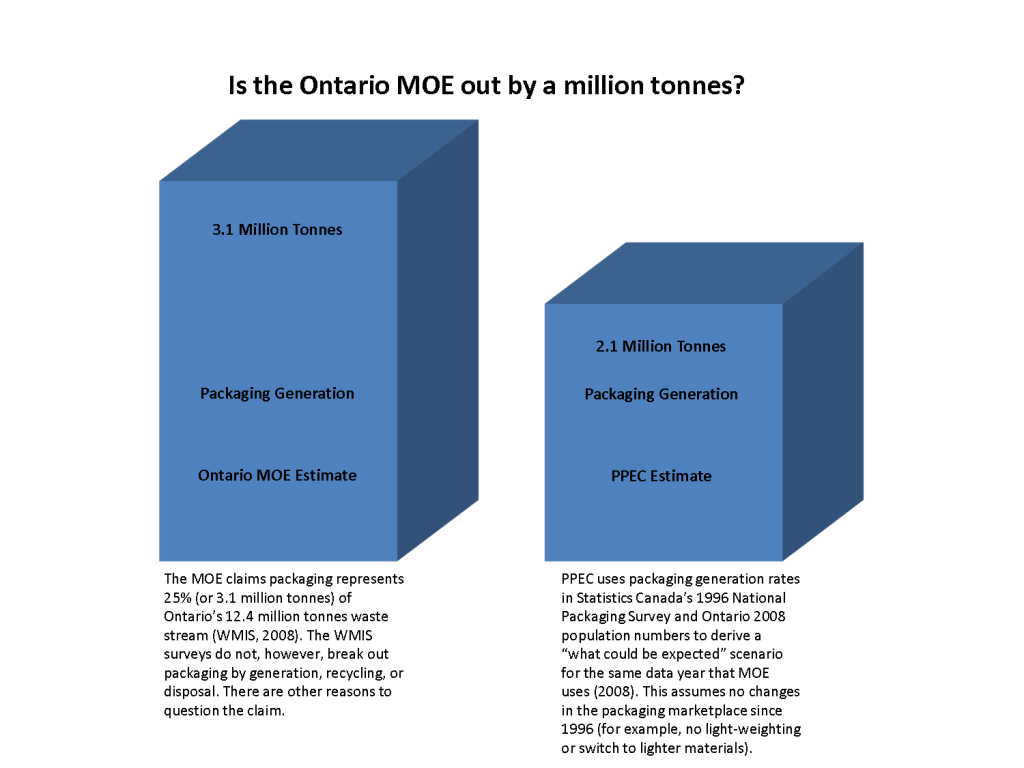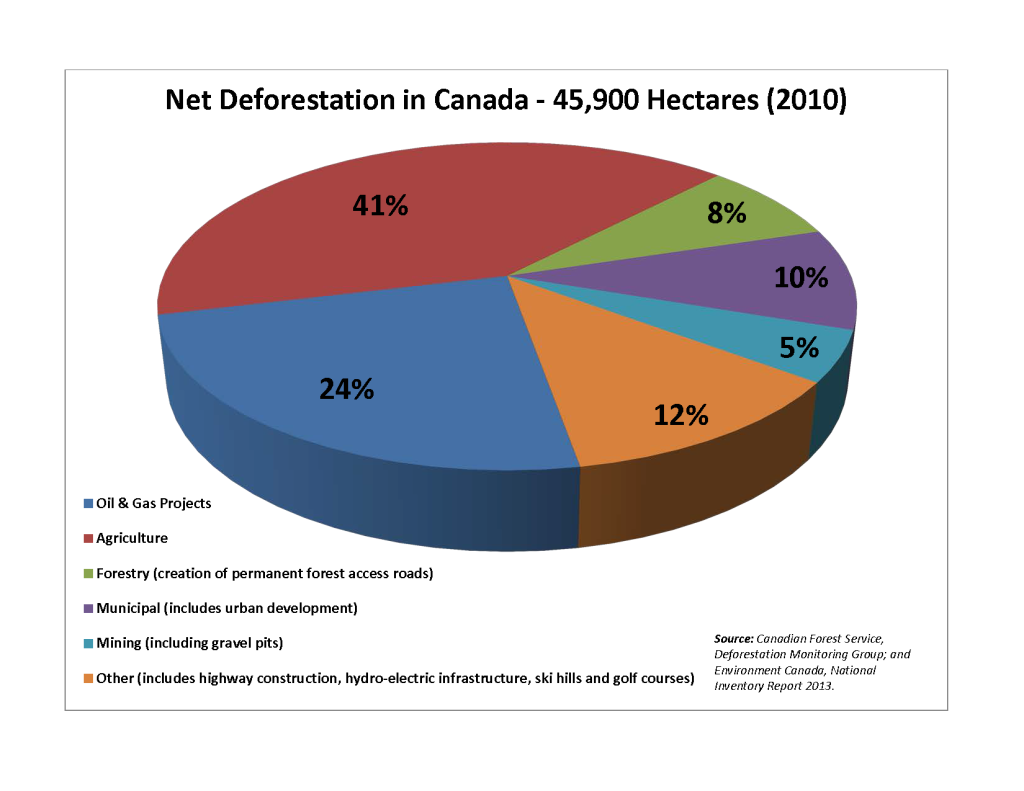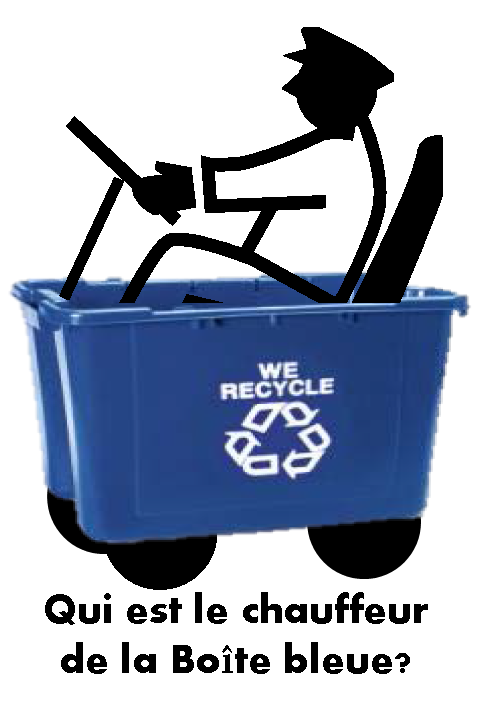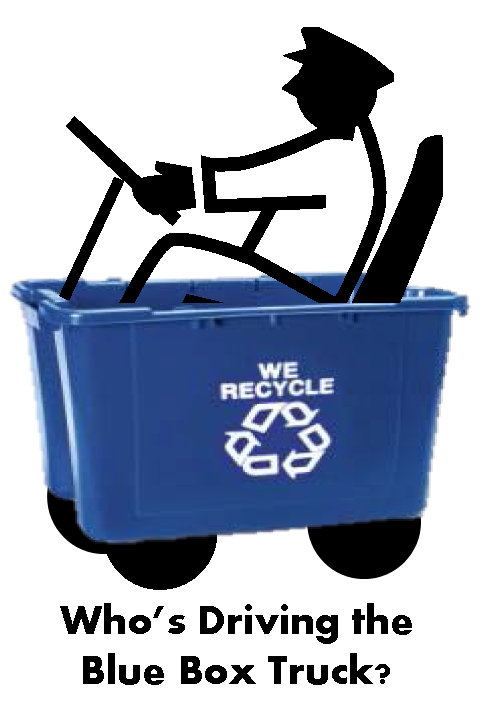News Flash! Over 70% of packaging is being re-used or recycled, most of it by industry
You hear it all the time from provincial and municipal politicians. “Industry” is dragging the chain on waste diversion, lagging way behind municipal efforts. This politically charged claim may be true for some waste streams, we don’t know. But there’s strong evidence that it’s certainly not true when it comes to packaging. Packaging is one
News Flash! Over 70% of packaging is being re-used or recycled, most of it by industry Read More »
There’s something fishy about Ontario’s packaging numbers
There’s a pie-chart in the Ontario Ministry of Environment’s Waste Reduction Strategy document that’s been bugging us for several months now, and although we’ve tried to get an explanation from the MOE both verbally and in writing, we have received nothing to date[1]. The pie-chart is titled “Ontario’s Waste Stream” and claims that
There’s something fishy about Ontario’s packaging numbers Read More »
Some really deep thoughts on the meaning of life, and paper
One of the interesting similarities between the life cycle of paper and that of the human species is that as we get older we become progressively weaker and wear out. Sorry for being the “bad news” guy today! But at some point, we need to be replaced by a fresh infusion of younger and stronger
Some really deep thoughts on the meaning of life, and paper Read More »
Oil and gas deforestation now three times that of forest industry
The oil boom in Western Canada is having a little publicised effect on the natural environment: deforestation. As we pointed out in a blog[1] back in August last year, the extraction of oil and gas (the raw materials from which plastics are derived) is responsible for more than double the deforestation in Canada than the forest
Oil and gas deforestation now three times that of forest industry Read More »
Les projets pétroliers et gaziers causent trois fois plus de déboisement que l’industrie forestière
En plein essor, les projets pétroliers de l’Ouest canadien ont un impact environnemental dont on parle peu : le déboisement. Dans notre blogue du mois d’août 2013[1], nous écrivions qu’au Canada, l’exploitation du pétrole et du gaz (les matières brutes dont les plastiques sont dérivés) cause un déboisement deux fois supérieur à celui de l’industrie
Clarifying some of the confusion over “recyclability”
Here’s our shot at trying to clarify some of the evident confusion about recyclability. Technically Recyclable: The great majority of printed paper and packaging ending up in Canadian homes is perfectly recyclable. A small minority of materials do cause some technical and cost problems at the processing stage, however. Sometimes this is because of ignorance
Clarifying some of the confusion over “recyclability” Read More »
Il y a un éléphant dans la pièce
La politique de la gestion des déchets est un sujet chaud en ce moment alors que diverses provinces se débattent avec l\’introduction ou la modification de ce qu\’elles appellent la « responsabilité élargie des producteurs », ou les programmes de REP, au sujet du papier imprimé et de l\’emballage résidentiels. Le véritable éléphant dans la pièce, toutefois, est
Il y a un éléphant dans la pièce Read More »
The elephant in the room
Waste management policy is a hot topic at the moment as various provinces grapple with introducing or modifying what they are calling “Extended Producer Responsibility” or EPR programs on residential printed paper and packaging. The real elephant in the room, however, is the future role of municipalities in Blue Box waste management. In our view,
The elephant in the room Read More »
La salubrité des aliments est un gros enjeu pour les producteurs, les détaillants et les consommateurs
L\’étude de l\’Université de Guelph dont nous avons fait état dans un blogue précédent (Loblaw et IFCO ont besoin d\’assainir leurs pratiques) cause pas mal de remous dans les cercles intéressés à la salubrité alimentaire, dans l\’industrie et dans le milieu gouvernemental à travers l\’Amérique du Nord et l\’Europe. L\’étude du Dr Keith Warriner alléguait

